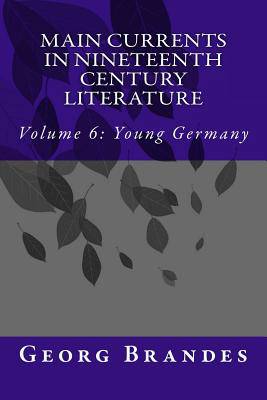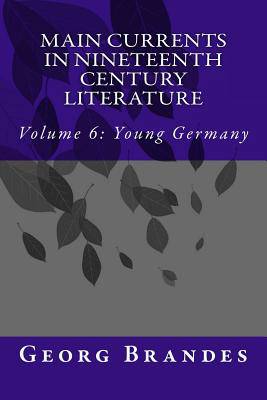
- Retrait gratuit dans votre magasin Club
- 7.000.000 titres dans notre catalogue
- Payer en toute sécurité
- Toujours un magasin près de chez vous
- Retrait gratuit dans votre magasin Club
- 7.000.0000 titres dans notre catalogue
- Payer en toute sécurité
- Toujours un magasin près de chez vous
Main Currents in Nineteenth Century Literature
Volume 6: Young Germany
Georg Brandes
Livre broché | Anglais
29,95 €
+ 59 points
Format
Description
From the days of the Holy Alliance onward, the spirit of systematic reaction brooded over the German countries-a reaction which dated from the Congress of Vienna, and had its centre in Austria. Its most typical representative, Metternich, a pupil of Talleyrand, a less adroit but far more mischievous man than his master, hoped to extend it to the whole of Europe. Everything that had been shaken, loosened, or overturned by the Revolution or by Napoleon was to be repaired and re-established. In the struggle with the great enemy they had been obliged at last to resort to every possible method, had been forced to appeal to the people instead of simply commanding, to appeal to their sentiment in place of their allegiance, and even to promise a thing as contrary to all cabinet policy, as youthfully revolutionary, as "the regeneration of Germany." There had been, it is true, a very noticeable difference between the Austrian and the Prussian watchwords. "Justice and Order," "Order and Peace," were the cues of the Austrian proclamations; those of the Prussian were "The Nation," "Freedom and Honour," "Germany." Still both of the great German States had made more concessions to the spirit of the times than at all suited the ideas of their leading statesmen. And no sooner was the enemy driven off, the heir of the Revolution crippled, and "the war of freedom" ended, than it became their object to put an end to the freedom as they had put an end to the war.
Spécifications
Parties prenantes
- Auteur(s) :
- Editeur:
Contenu
- Nombre de pages :
- 268
- Langue:
- Anglais
Caractéristiques
- EAN:
- 9781508545453
- Date de parution :
- 18-02-05
- Format:
- Livre broché
- Format numérique:
- Trade paperback (VS)
- Dimensions :
- 152 mm x 229 mm
- Poids :
- 362 g

Les avis
Nous publions uniquement les avis qui respectent les conditions requises. Consultez nos conditions pour les avis.






